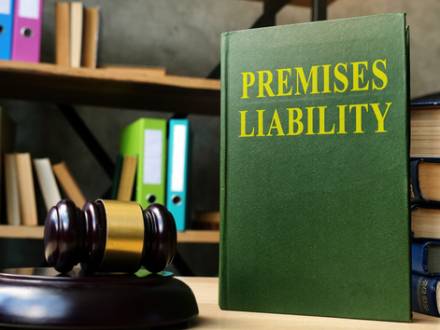Free Consultations 512-474-2222
512-474-2222
Contact Our Firm
The use of the Internet or this form for communication with the firm or any individual member of the firm does not establish an attorney-client relationship. Confidential or time-sensitive information should not be sent through this form.
I have read and understand the Disclaimer and Privacy Policy.

Recent Blog Posts
How Can Texas’s Junk Science Laws Impact a Criminal Case?
 As technology develops, it has improved many aspects of our daily routine. Like all areas of life, the criminal justice field has been significantly impacted by technological advances. Improved crime scene investigation techniques and DNA testing and matching methods have been revolutionary in convicting previously unsolved cases and exonerating innocent people who were wrongly convicted.
As technology develops, it has improved many aspects of our daily routine. Like all areas of life, the criminal justice field has been significantly impacted by technological advances. Improved crime scene investigation techniques and DNA testing and matching methods have been revolutionary in convicting previously unsolved cases and exonerating innocent people who were wrongly convicted.
However, better technology now means that some methods used in the past are lacking or flawed, and resulting convictions can be challenged. A current case that has garnered substantial national attention has highlighted the issues with what is dubbed "junk science." To learn more about how current science might help get a conviction overturned, speak with a knowledgeable Austin, TX criminal defense attorney.
Changing Seasons and Personal Injury Cases in Texas
 When most people think of Texas, they generally think of heat. However, parts of Texas can have severe winter conditions. As autumn changes into winter, the weather can cause various hazards that must be addressed so no one gets hurt. Property owners have a particular responsibility to maintain safe conditions in the areas they are responsible for. Otherwise, if you end up with an injury because they failed to keep their property safe, you could sue for damages in a premises liability case. To learn more, speak with a knowledgeable Georgetown, TX personal injury attorney.
When most people think of Texas, they generally think of heat. However, parts of Texas can have severe winter conditions. As autumn changes into winter, the weather can cause various hazards that must be addressed so no one gets hurt. Property owners have a particular responsibility to maintain safe conditions in the areas they are responsible for. Otherwise, if you end up with an injury because they failed to keep their property safe, you could sue for damages in a premises liability case. To learn more, speak with a knowledgeable Georgetown, TX personal injury attorney.
Common Winter-Related Accidents
Austin rarely sees snow, but temperatures can drop to freezing in the winter. When that happens, puddles gathered from rain can turn into dangerous, icy hazards. Slip-and-falls are the most common accident caused by wintery conditions. If an accumulation of ice is considered "natural" - for example, if it rained for two days straight and then freezing temperatures caused ice to form on a ramp somewhere - that is not something a property owner would be typically liable for.
Defending Against Charges of Diesel Theft in Texas
 Texas has a set of laws dedicated to what happens when diesel fuel is stolen. A recent case where a Texas man was arrested on charges of diesel theft, convicted, and sentenced to 50 years in prison highlights not only that this crime is more common than you might think but also how seriously it is treated. If you are facing charges of diesel theft, speak with a trustworthy Austin, TX criminal defense attorney to understand your options.
Texas has a set of laws dedicated to what happens when diesel fuel is stolen. A recent case where a Texas man was arrested on charges of diesel theft, convicted, and sentenced to 50 years in prison highlights not only that this crime is more common than you might think but also how seriously it is treated. If you are facing charges of diesel theft, speak with a trustworthy Austin, TX criminal defense attorney to understand your options.
What Are the Charges for Diesel Theft?
According to Texas Penal Code Title 7 Chapter 31 Section 19, diesel theft is when someone illegally and intentionally takes "petroleum product" - crude oil, natural gas, or condensate, from its owner or directly from a pipeline or storage tank without paying for it. It is generally considered a category of property theft. The charges for diesel theft vary depending on how much was taken. The law specifies which amounts of stolen diesel would be penalized with which charges, ranging from a Class C Misdemeanor for stealing an amount worth less than $100 to a first-degree felony for a stolen amount worth over $300,000. Depending on the charges, you might be given no jail time and a fine of up to $500 or you could face a life sentence.
Am I Criminally Liable for a Pedestrian Accident in Texas?
 Pedestrians get hit by cars in crosswalks more often than many people realize. According to the Texas Department of Transportation, pedestrian accidents resulted in 830 deaths and 1,526 injuries in 2022. If you are the driver, you can be charged with anything from a traffic violation to a serious criminal charge. Having an experienced Austin, TX criminal defense lawyer help you navigate the charges can make a big difference. Read on to learn about some Texas laws that are considered when determining liability for a pedestrian accident.
Pedestrians get hit by cars in crosswalks more often than many people realize. According to the Texas Department of Transportation, pedestrian accidents resulted in 830 deaths and 1,526 injuries in 2022. If you are the driver, you can be charged with anything from a traffic violation to a serious criminal charge. Having an experienced Austin, TX criminal defense lawyer help you navigate the charges can make a big difference. Read on to learn about some Texas laws that are considered when determining liability for a pedestrian accident.
Right-of-Way Laws
There are guidelines that help determine who has the right-of-way in Texas crosswalks. If there are traffic lights, they need to be followed. Otherwise, pedestrians have the right of way at crosswalks. If a pedestrian ignores traffic lights and is hit in a crosswalk when they are not supposed to be there, the driver might not be found liable.
Personal Injury Case with a Gazebo Product Recall
 When a product poses safety risks or cannot meet regulatory standards, companies sometimes issue a product recall to prevent injury. Recalling a product means removing it from the market and notifying customers about the issue. The company might also offer repairs, replacements, or refunds. Recently, a popular brand of gazebos was recalled due to safety issues that have caused injuries. If you or someone you know has been hurt by a faulty product, speak with a seasoned Austin, TX personal injury attorney to understand your rights and learn about your options.
When a product poses safety risks or cannot meet regulatory standards, companies sometimes issue a product recall to prevent injury. Recalling a product means removing it from the market and notifying customers about the issue. The company might also offer repairs, replacements, or refunds. Recently, a popular brand of gazebos was recalled due to safety issues that have caused injuries. If you or someone you know has been hurt by a faulty product, speak with a seasoned Austin, TX personal injury attorney to understand your rights and learn about your options.
Why Were Gazebos in Texas Recalled?
In Texas, over 32,000 units of a specific gazebo were recalled following at least 137 reports of incidents in which the roof panels dislodged, causing them to collapse unexpectedly. For now, it appears that there was only one reported case of minor injuries. Even so, the Consumer Product Safety Commission announced that consumers can request free repair kits and should stop using their gazebos until they are repaired.
Lower Costs for Inmate Phone and Video Calls
 In America, even if you are a convicted criminal you have certain rights. One such right is the ability to make phone calls while incarcerated. In an era where the news is often very negative, we are pleased to discuss a positive development: the costs of phone and video calls for inmates in Texas have recently lowered. This change is a big deal for families and inmates, making it easier for them to stay in touch. If you have been convicted of a crime and are concerned that your rights are being abused, speak with a skilled Austin, TX criminal defense attorney to find out how we can help.
In America, even if you are a convicted criminal you have certain rights. One such right is the ability to make phone calls while incarcerated. In an era where the news is often very negative, we are pleased to discuss a positive development: the costs of phone and video calls for inmates in Texas have recently lowered. This change is a big deal for families and inmates, making it easier for them to stay in touch. If you have been convicted of a crime and are concerned that your rights are being abused, speak with a skilled Austin, TX criminal defense attorney to find out how we can help.
How Does This Help?
Staying connected with loved ones is important for inmates. It helps them feel supported and can even help them behave better and prepare for life after prison. However, in the past, it could be costly for inmates to make phone and video calls, which could place extra financial strain on them and their families. Thanks to a recent FCC vote, that is going to change. There will now be a cap on how much these conversations can cost, doing away with previous exorbitant rates.
5 Tips When Offering an Alibi in Criminal Defense
 Regardless of the charges, a solid alibi can contribute greatly to a defendant’s case. Serving as a crucial piece of evidence, an alibi can sway the outcome of a trial if it can present a credible alternative to the story that the prosecution is trying to tell. This article will describe five important things to consider if you need an alibi to help you fight criminal charges. If this is personally relevant to you, speak to a seasoned Austin, TX criminal defense attorney with experience helping clients navigate the complexities involved.
Regardless of the charges, a solid alibi can contribute greatly to a defendant’s case. Serving as a crucial piece of evidence, an alibi can sway the outcome of a trial if it can present a credible alternative to the story that the prosecution is trying to tell. This article will describe five important things to consider if you need an alibi to help you fight criminal charges. If this is personally relevant to you, speak to a seasoned Austin, TX criminal defense attorney with experience helping clients navigate the complexities involved.
Tip 1: Detailed Documentation
If you are incriminated in a criminal case, one of the best ways to build a strong alibi is by gathering thorough documentation. This can include:
- Correspondence
- Social media posts that have timestamps, location information, or metadata
What if You Share Partial Fault in a Car Accident?
 Car accidents are complex events, and it is not uncommon for multiple parties to share responsibility. If you find yourself in a situation where you may be partially at fault for a car accident in Texas, you might wonder about your legal rights and options. A Texas lawyer can help you understand the concept of shared fault and its implications when seeking compensation.
Car accidents are complex events, and it is not uncommon for multiple parties to share responsibility. If you find yourself in a situation where you may be partially at fault for a car accident in Texas, you might wonder about your legal rights and options. A Texas lawyer can help you understand the concept of shared fault and its implications when seeking compensation.
Can You Still Get Compensation if You Are Partially at Fault?
You can receive compensation, but Texas may reduce the amount you are eligible for. Texas follows a modified comparative negligence rule, also known as the "51% bar rule." This means you can still recover damages if you are not more than 50% responsible for the accident.
Here is how it works:
- Your percentage of fault is determined based on the evidence and circumstances of the accident
Probation Violations in Texas
 When you get charged for committing a criminal offense in Texas, the judge can use her discretion when deciding what your punishment will be. For violent crimes that have resulted in serious damage or even fatalities, chances are that the judge will sentence you to a harsher punishment including years of incarceration. For first-time offenses and nonviolent crimes, judges sometimes show more leniency and might offer you probation instead of jail time. While you can feel relieved that you do not need to go to prison, there are several requirements and conditions you need to fulfill. If you fail to do so, you run the risk of being in violation, which is something you should take very seriously because your probation can quickly turn into a prison term. Today, we will examine how you should address accusations of violating your probation agreement. Of course, if you are in danger of facing such accusations, contact a dedicated Austin, TX criminal defense attorney to understand how best to protect yourself.
When you get charged for committing a criminal offense in Texas, the judge can use her discretion when deciding what your punishment will be. For violent crimes that have resulted in serious damage or even fatalities, chances are that the judge will sentence you to a harsher punishment including years of incarceration. For first-time offenses and nonviolent crimes, judges sometimes show more leniency and might offer you probation instead of jail time. While you can feel relieved that you do not need to go to prison, there are several requirements and conditions you need to fulfill. If you fail to do so, you run the risk of being in violation, which is something you should take very seriously because your probation can quickly turn into a prison term. Today, we will examine how you should address accusations of violating your probation agreement. Of course, if you are in danger of facing such accusations, contact a dedicated Austin, TX criminal defense attorney to understand how best to protect yourself.
How Can I Get My Suspended License Back?
 If you are caught driving while intoxicated (DWI), there are many ways you might be penalized depending on the specifics of what happened. You might need to complete community service, pay fines, serve time in jail, and you might even have your driver’s license suspended. If that happens, it is illegal for you to drive, even if you need to drive to work or to deal with a family emergency. For people who rely on their ability to drive for various important aspects of their daily lives, the prospect of a suspended license can be very distressing. The good news is that there is hope. The state of Texas does allow for driver’s license reinstatement after a DWI under certain conditions. Speak with a dedicated Austin, TX criminal defense attorney to understand how you might get your license reinstated.
If you are caught driving while intoxicated (DWI), there are many ways you might be penalized depending on the specifics of what happened. You might need to complete community service, pay fines, serve time in jail, and you might even have your driver’s license suspended. If that happens, it is illegal for you to drive, even if you need to drive to work or to deal with a family emergency. For people who rely on their ability to drive for various important aspects of their daily lives, the prospect of a suspended license can be very distressing. The good news is that there is hope. The state of Texas does allow for driver’s license reinstatement after a DWI under certain conditions. Speak with a dedicated Austin, TX criminal defense attorney to understand how you might get your license reinstated.
When Is a Driver’s License Suspended?
When someone is arrested for a DWI, one of the consequences they will face is having their license suspended. What many people do not know is that your license can be suspended even if you are not convicted. It can be suspended for 90 days without a conviction if you fail a breathalyzer and for 180 days if you refuse to submit to the test.




